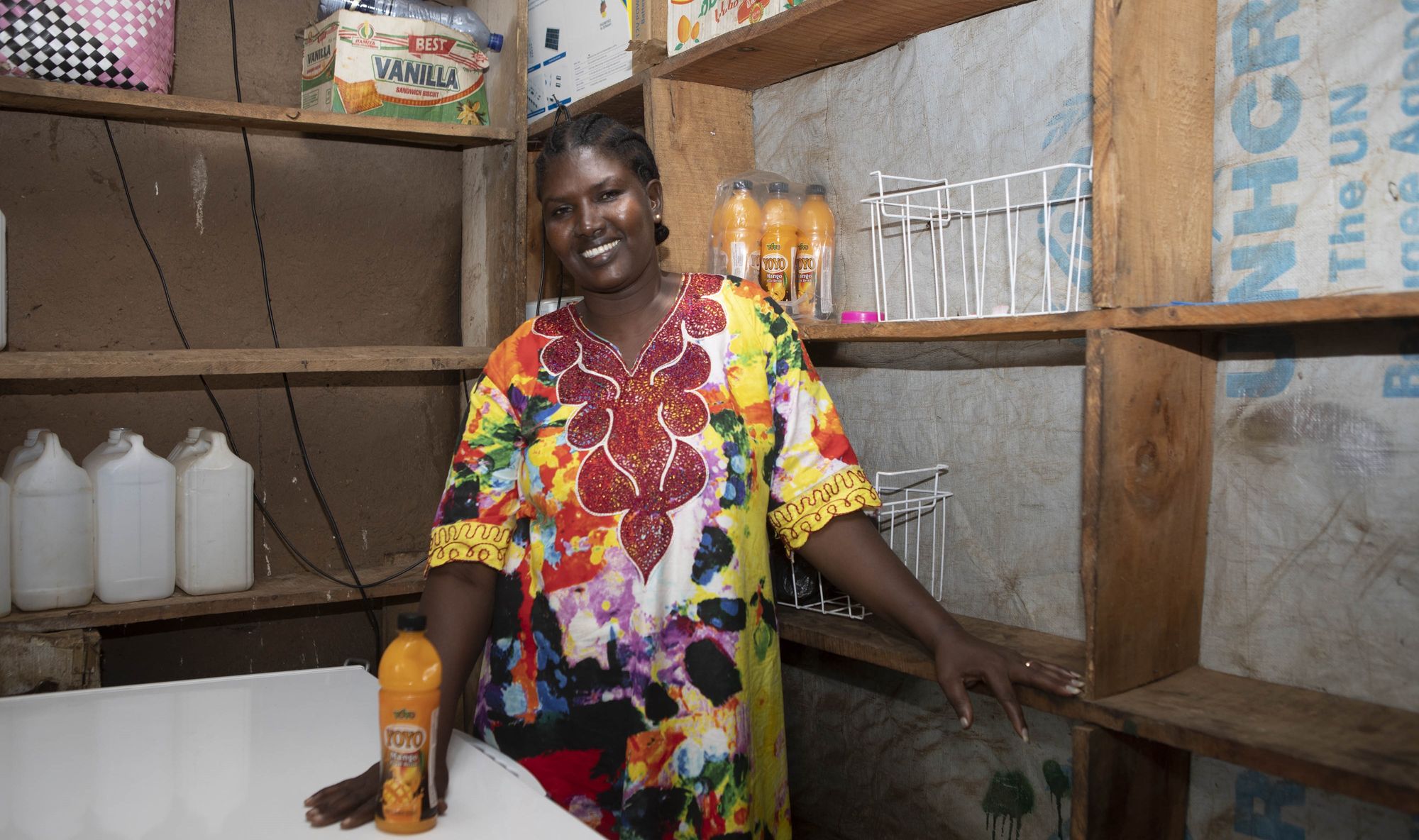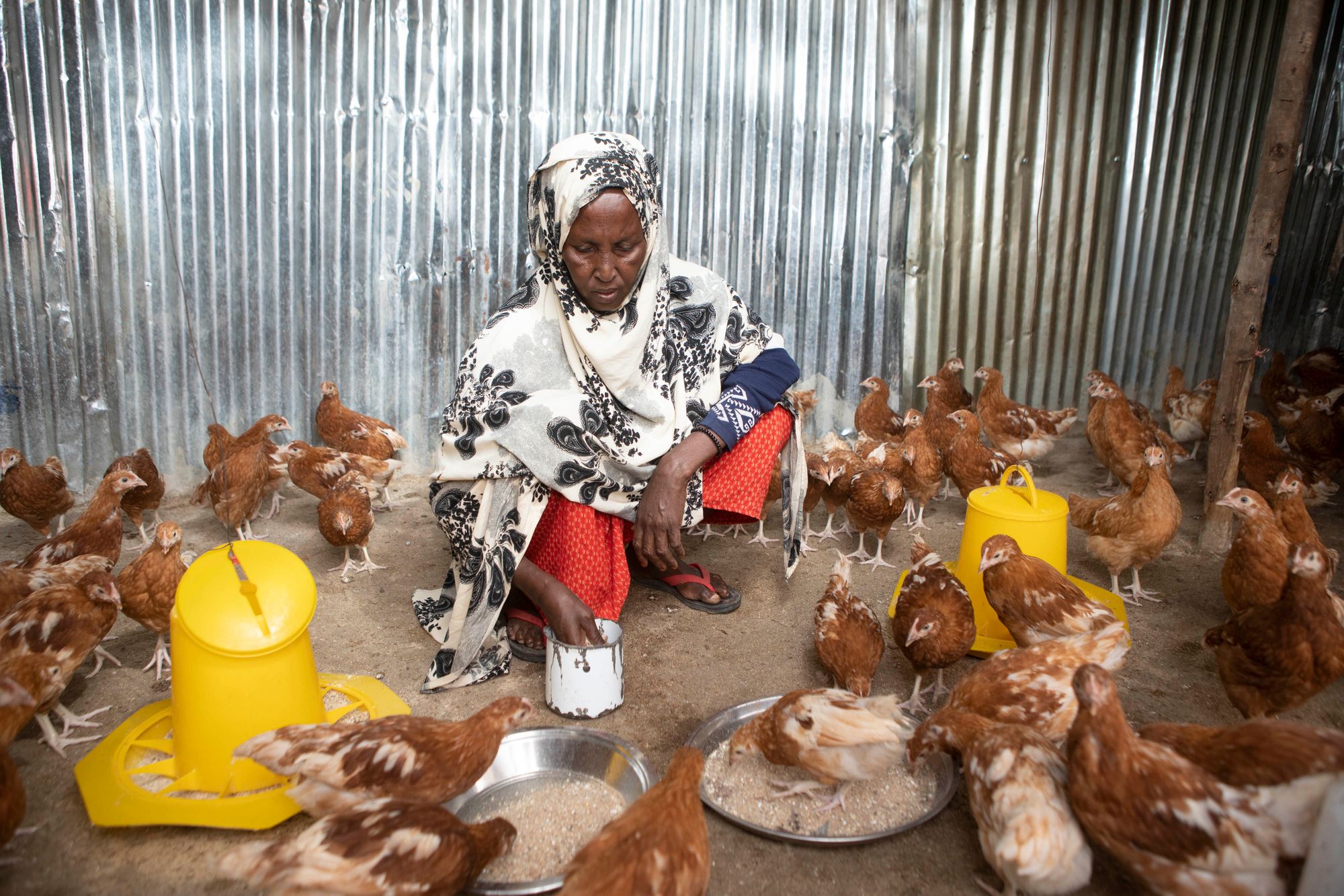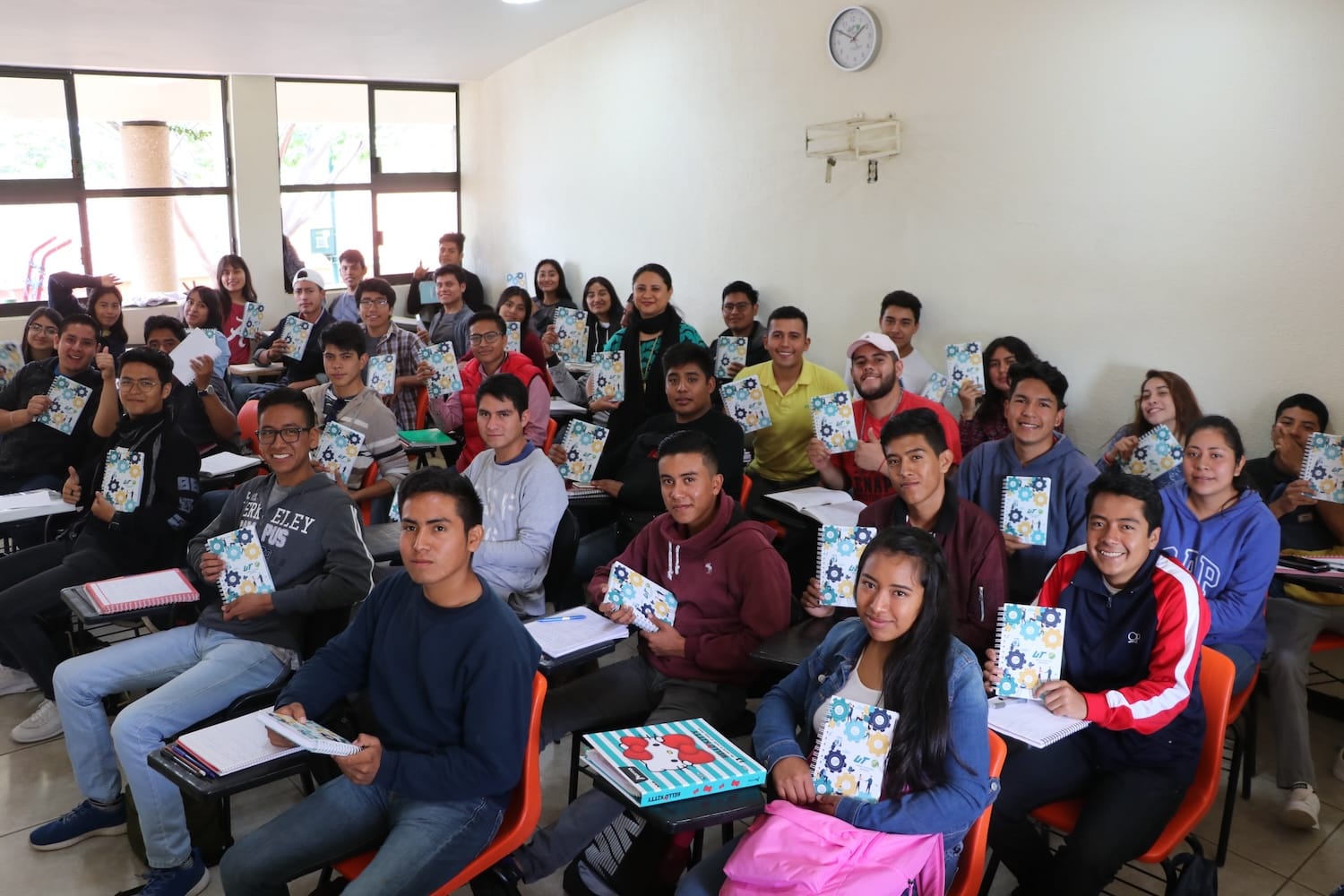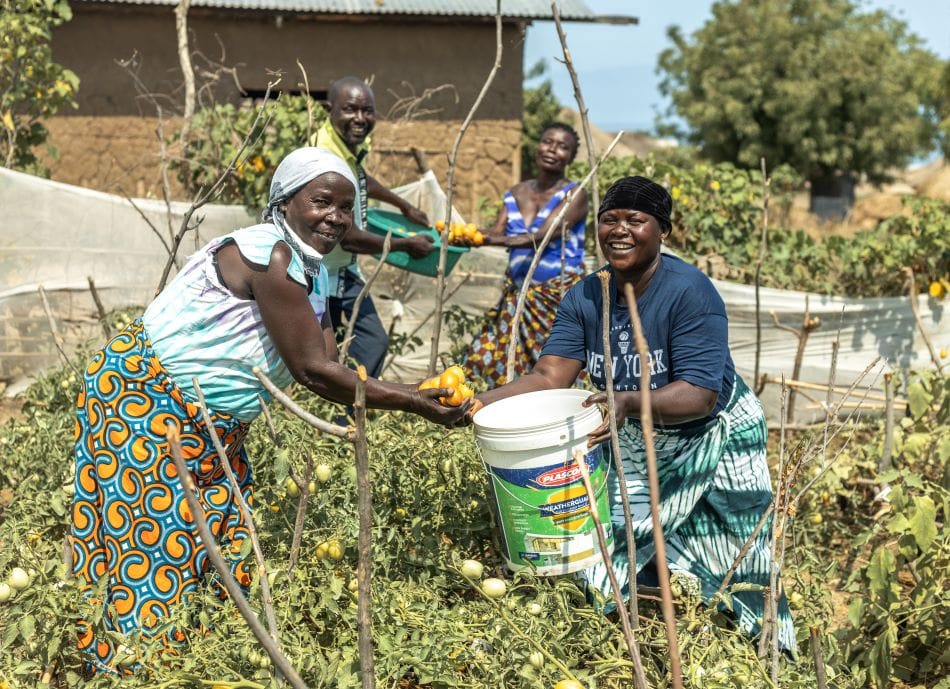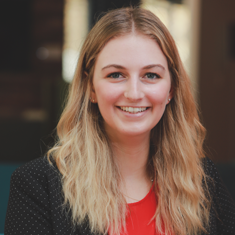The Strengthening Host and Refugees Populations in Ethiopia project (SHARPE) is a Foreign, Commonwealth & Development Office (FCDO) project designed to work with businesses, government, and service providers to increase refugee self-reliance and generate economic opportunities for host communities. In the first article of this two-part series, I explored some of the barriers we have had to overcome and the opportunities we have created. In this second article, I focus on the piloting and scaling of our interventions that helped make markets work for our target communities.
Looking back to 2019 and the start of SHARPE and the focus of my previous article on the project, it is worth revisiting the many barriers the private sector faces in engaging with refugees.
Some of these barriers we had little influence over: refugees mostly live in camps located in remote, often unstable regions; the camps are difficult and expensive to reach and have poor infrastructure and telecommunications; and the policy framework governing refugees’ right to work is unclear.
Other barriers we could address: the lack of knowledge of the refugee hosting regions and refugees; negative stereotypes of refugees and the perception that refugees are high-risk/low-return customers and business partners with little or no purchasing power; the fact that local businesses are mostly informal, unregistered microenterprises; and the low levels of capital, assets, and access to finance among refugees.
Now, four years into the project, scores of local business partners are operating in refugee-hosting regions across various sectors—from finance and agri-business to renewable energy—and showing that when supported and linked to the wider market system, they can run economically viable businesses founded on their own experience, capacity, and initiative.
SHARPE has developed partnerships with 118 private businesses, helping them to grow, develop new markets and products, and supply livelihood-enhancing goods and services to Ethiopian host communities and refugees. The partnerships comprise 11 larger lead firms that have entered new markets; 59 regional, host-owned, medium, small, and micro-enterprises; and 48 refugee-owned micro-enterprises. As our knowledge of the local economies in the Gambella and Somali regions has grown—alongside our knowledge of the informal economies in refugee communities—it has become easier to support and advise businesses, many of which are first movers in these markets.
Collectively, the businesses have provided goods and services that have economically benefitted more than 100,000 people, creating additional income of GBP£8.8 million for refugees and their neighboring communities. Alongside SHARPE’s concessional financing (grants or loans), these businesses have invested £1.2 million and generated additional sales worth £33.5 million, demonstrating that these remote markets are viable for the right company with the right product and the right sales-plus-service package. Following are some of the key lessons we have learned.
Finding the Right Partnerships
Finding the right private sector partner, with the right incentives and motivation, is critical. We did not seek nor receive proposals from companies; instead, based on our research of market gaps and opportunities, we proactively searched for the right business to work with. For start-ups and micro-level businesses—such as “mother units,” or small commercial poultry farms supplied by EthioChicken—we found people with the right mix of skills, experience, motivation, and capital—or, in other words, capacity. Building upon capacity and directly supporting some of the better-off people in the host and refugee community was essential, albeit against the norm in refugee programming, where vulnerability criteria tend to be prioritized over capacity. Two-thirds of these businesses are still working profitably, a solid success rate given the many challenges faced by small family businesses, particularly start-ups. Through this process, we learned the reasons why companies might be interested in investing and expanding into refugee markets:
- Competitive pressure: large national firms such as EthioChicken and Shabelle Bank face competitive pressure to grow. They operate in larger markets but have limited opportunities for growth due to market saturation and new entrants. They need new markets.
- Last mile companies: some private firms specialize in serving "last mile" and off-grid rural communities, offering products and solutions tailored for consumers in these settings, such as renewable energy and agricultural inputs.
- Inclusive businesses: some private firms are organized around a social development mission and are seeking to advance their social vision and business strategy.
- Growth opportunity: many regional entrepreneurs see the large, densely populated refugee camps—often located more than 50km from the main regional town—as a potential market to expand into geographically.
These firms also choose to invest for another compelling reason: to capture the first mover advantage, an edge that might be out of reach without SHARPE's support or enhanced with it.
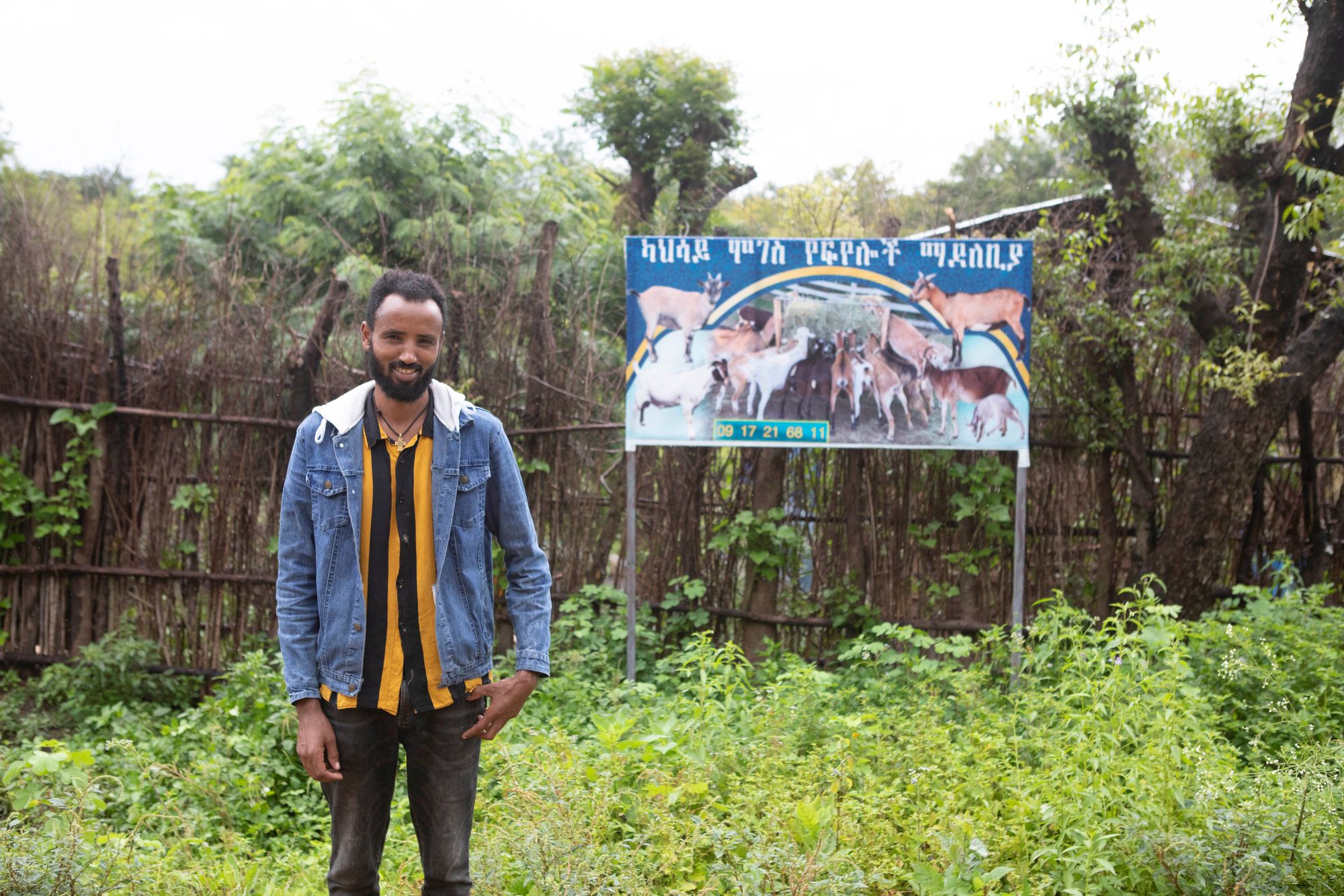
Judicious Public Subsidy
There is significant risk and expense for companies moving into unfamiliar, distant, and high-risk markets at this nascent stage of refugee market development. Mitigating these risks requires blended finance models—carefully managed public subsidy matched with private financing. SHARPE co-funded business expansion and entry costs using guiding principles to avoid over-subsidizing and sought a 50/50 share of costs with the beneficiary company.
Financing was always for market-entry and expansion costs, such as salaries for a Know Your Customer staff team to promote Hello Cash mobile money services and onboard new clients and agents or opening a new agro-vet sales outlet near a refugee camp. It was not for core business costs. The regional enterprises were financed wherever possible by linking them to a financial institution and negotiating a business loan. In the early stages, SHARPE co-funded the loan to build the confidence of the financial institution (in this case, Shabelle Bank in Ethiopia's Somali region) since this was a financing package for a new business and a higher-risk market than usual. Today, these loans are organized at commercial rates with no subsidy from SHARPE.
Start Small
Companies do not know refugee markets and often doubt that refugees are viable consumers. Entering these markets requires a considerable investment of time, research, exploration, and business partnership development, and money is needed upfront. Many companies must reduce their risk by starting small to test the market and build knowledge and confidence. A local business partner (in this case, SHARPE) with solid relationships and an understanding of the local economic landscape is critical to this process.
A couple of examples:
- SHARPE’s initial agreement with Hello Solar, an Addis-based importer and distributor of home solar energy kits, was for Hello Solar to import, assemble, and sell 500 of its kits in the refugee markets close to Jijiga, and to visit the refugee camps in the more remote Dollo Ado region for an initial assessment. Following a six-month pilot where all 500 kits were sold with no payment defaults, Hello Solar agreed to expand its operations into Dollo Ado and to sell an additional 2,000 kits, having been convinced of the viability of the refugee market.
- Shabelle Bank was initially unwilling to lend to refugee business owners, considering them a flight risk. Shabelle agreed to offer a micro-lending package of Birr 60,000/$1,080 to 41 of its mobile money Hello Cash agents (including 20 refugees), all of whom repaid within the one-year loan period. The bank is now extending this micro-lending package to additional business customers.
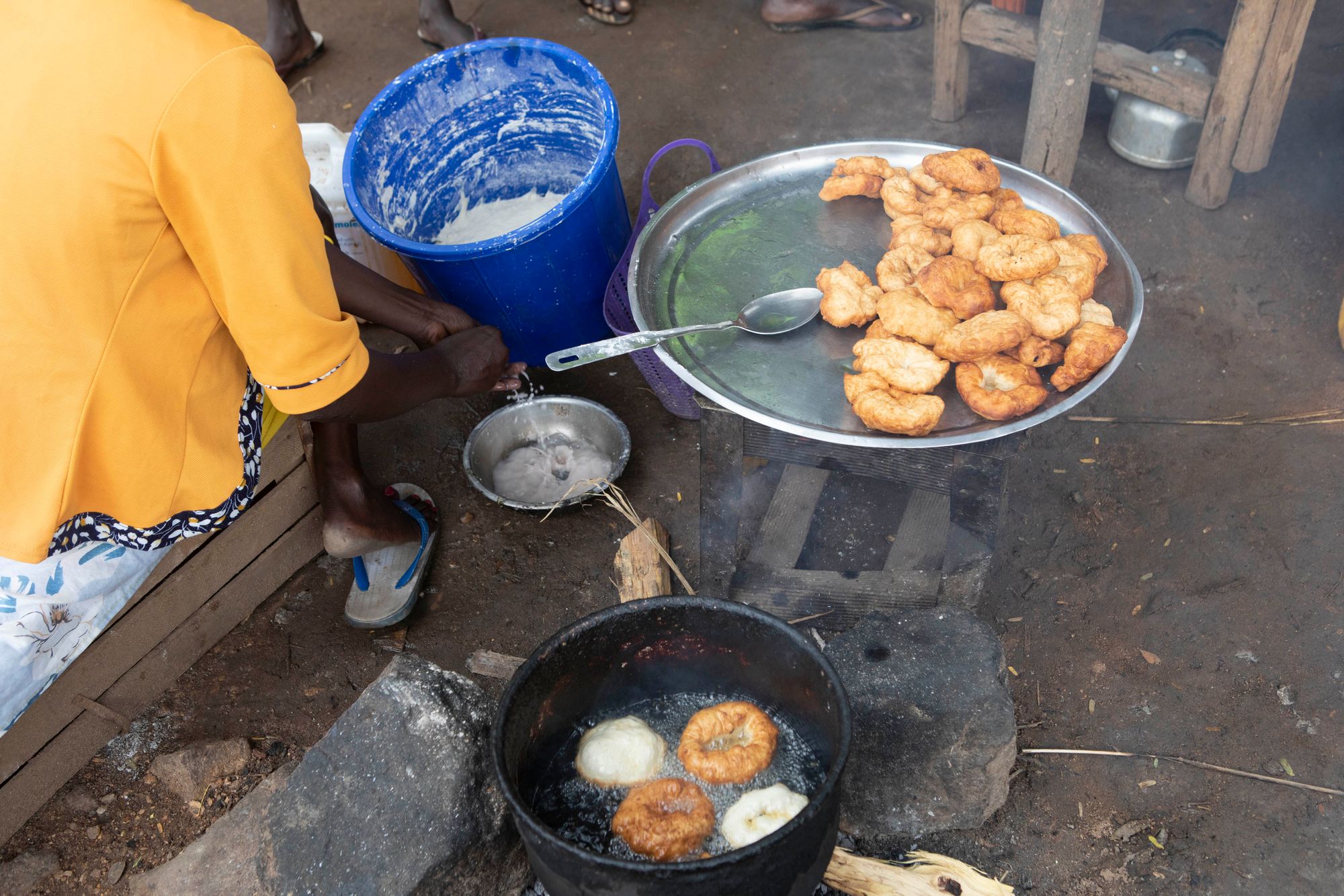
Adapt to Include Refugees
Private firms de-risk new market entry by testing the feasibility of their business models in town centers and nearby markets before entering higher-risk or higher-cost refugee communities. However, fewer refugee business owners benefit from direct partnerships—most business partnerships are with Ethiopian “host” business owners. Similarly, fewer refugee consumers and suppliers of goods and services benefit from SHARPE's private sector partners. For example, new users of Hello Cash are split 70/30 between hosts and refugees, with most new Hello Cash agents coming from the host community. Only five of 20 agro-vet dealers are run by refugees and located inside refugee camps—all in Dollo Ado—with approximately two-thirds of agro-vet customers also being from the host community. SHARPE's role was to find ways to redress this balance.
In the case of Hello Solar, only four of the 500 customers who bought the home energy kit during the pilot phase were refugees. SHARPE monitored which customers were purchasing these products to understand why refugee engagement lagged behind. We then worked closely with the companies to adapt their usual business models to make the products more accessible and appropriate for refugees. Hello Solar agreed to reduce its down-payment from Birr 1,500 ($27) to Birr 500 ($9), with an extended repayment period through PAYGO, to make it affordable, which resulted in a massive increase in sales within the refugee community.
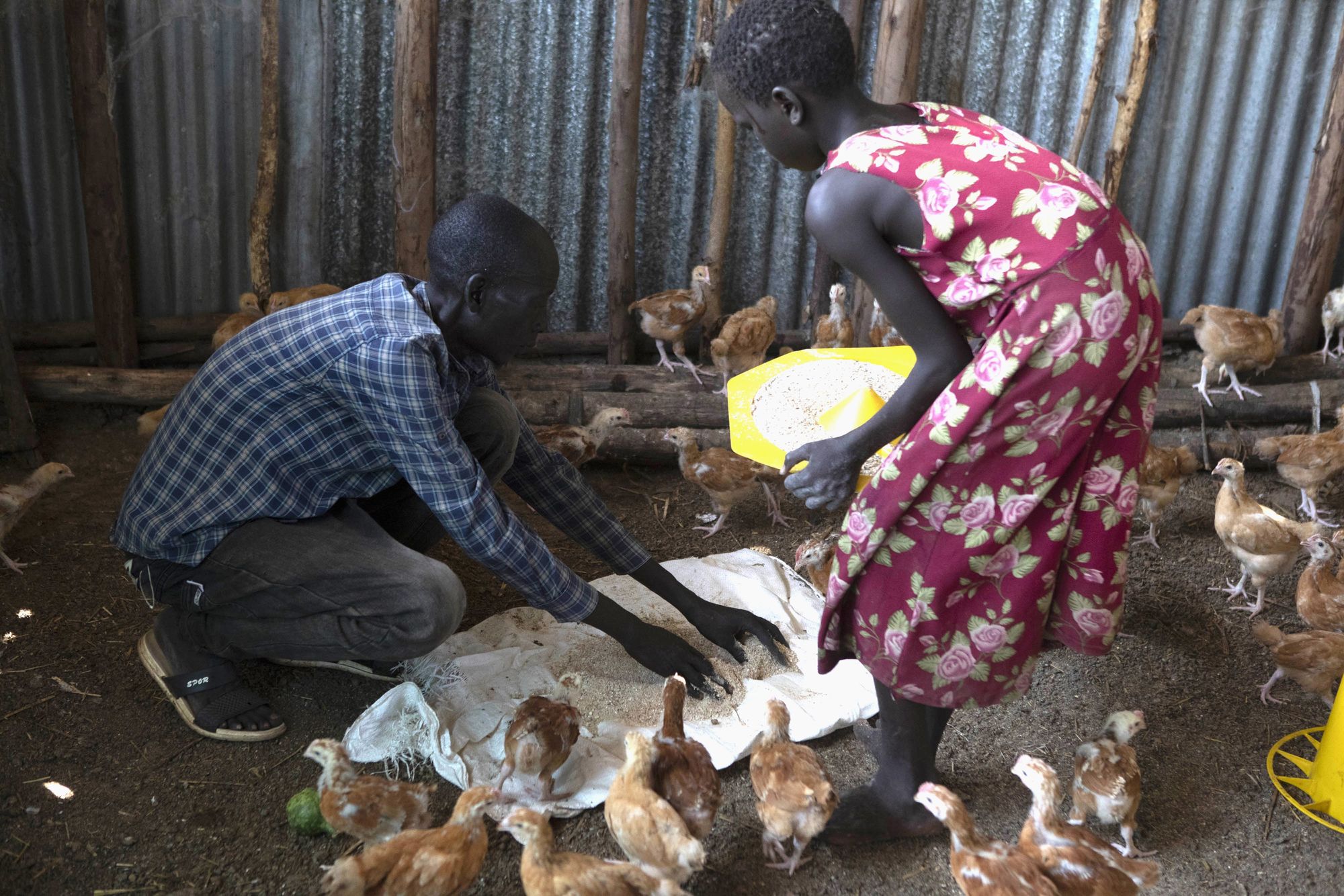
The poultry business also offered an excellent opportunity for refugees to enter the commercial sector. However, the typical EthioChicken mother unit—which starts with 500 one-day-old chicks—was too big an investment and too expensive for refugees, so SHARPE argued for it to be reduced to 100 chickens for Somali refugees in the Jijiga and Dollo Ado camps, leading to more than 20 poultry start-ups among refugees.
Time
For practitioners, the approach is self-evident—market systems development-style (MSD) interventions need time to grow. Moving from market analysis and partnership development to business and market growth, adaptation, and scale-up—across multiple sectors in challenging, thin markets—can often take up to five years to see impact at scale. However, in typical programs focused on refugees and forcibly displaced people, short-term funding cycles are the norm, frequently one-year funding cycles. Convincing the private sector to invest its resources into refugee markets requires a longer-term commitment and a longer-term presence on the ground to pilot, test, adapt, and grow business models in a way that is inclusive of refugees.
The Humanitarian Sector Provides a Market Opportunity
The humanitarian sector routinely procures and distributes aid to refugees—food, construction materials, and livelihood inputs. This is a sizeable market for local companies and provides an opportunity to serve refugees indirectly via purchases made by the aid sector. By supporting businesses that produce and supply these items—enterprises such as agro-vet pharmacies, poultry farms, and seed businesses—SHARPE has enabled them to access a humanitarian market, with aid agencies preferring to procure locally where possible.
In the short term, aligning market-based with humanitarian interventions provides a win-win solution to make essential inputs available sustainably. However, direct distribution for free to refugees may undermine the potential for long-term market development. Where possible, a gradual reduction or more precise targeting of the distribution of livelihood inputs would create space for regular markets while allowing humanitarian actors to focus their support on the most vulnerable.
Next Steps
The SHARPE program is now entering its final phase, with a twin focus for its final last year: applying what we have learned to deepen our reach and impact within refugee communities and generating data and evidence to inform similar programming in the future. We will be publishing a methodological guide for how we applied the market systems development approach in narrow refugee markets, and various studies exploring how we used public subsidies alongside private investment. We will also examine how we have adapted business models to increase their relevance to refugees and ensure these displaced populations benefit from these goods and services alongside their Ethiopian host communities.

